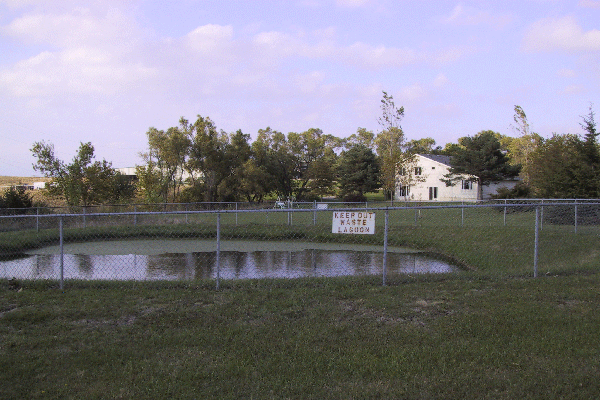The arrival of spring, warm weather and sunshine brings a flurry of activity around your acreage. Annual plantings are done, mulch is purchased, spring cleaning is completed and the mowing season begins. All of those things are done annually to maintain homes and yards.
If you have a wastewater lagoon, spring should also include annual inspection and maintenance of your lagoon. Spending some time at the beginning of the season looking for potential issues can make your maintenance efforts pay off in both time and money savings down the road. Also, you and your wastewater lagoon are part of the effort to protect our important water resources, wildlife and the health and safety of your family.
Below are periodic operation and maintenance items to complete and things to look for when inspecting your lagoon:
- Regularly check that grass covering the lagoon berm remains between 3 to 6 inches to prevent shading and allow airflow through the lagoon. Mowing needs to be done to keep grass under 6 inches.
- Make sure trees, shrubs or other plants are at least 50 feet from the lagoon berm to maintain good airflow and sun exposure in the lagoon. This also ensures the roots will not damage the integrity of the berm.
- Check your lagoon for signs of duckweed, cattails, reeds or other vegetation that doesn’t below. If any of those are present take steps to mechanically or chemically remove them sooner than later.
- Make sure the fence around your lagoon does not have gaps or holes that could allow wildlife or small children into the lagoon. Also check that your gate latches and locks securely.
- Use bleach or other disinfectants sparingly in your home to limit potential to harm good bacteria within the lagoon.
- Do not pour grease, cooking fats, chemical drain openers, paints, solvents, fuels, oil, pesticides or other chemicals down the drain in your home.
For more information on lagoon and wastewater system operation and maintenance go to water.unl.edu or Lancaster.unl.edu.

